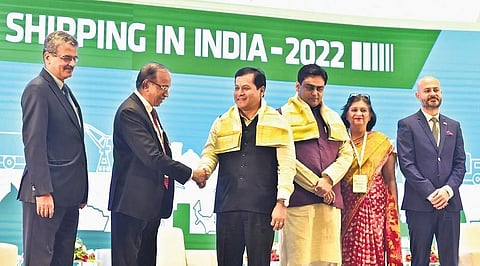

KOCHI: The Cochin Shipyard (CSL) will develop and build the first indigenous hydrogen fuel cell vessel as part of its efforts to achieve green shipping, Union Minister for Ports, Shipping and Waterways Sarbananda Sonowal announced on Saturday. The decision is part of India’s efforts on the green energy and sustainable cost-effective alternative fuel front, Sonowal said at a workshop on Green Shipping, organised by the Union Ministry here.
The hydrogen fuel cells can be used in a wide range of applications. Fuel cells operating on hydrogen are an efficient, environment-friendly direct current (DC) power source already applied to heavy-duty bus, truck and train applications, and are now under development for marine applications.The minister said the CSL would implement the project in collaboration with Indian partners, for which the groundwork has already begun. The hydrogen fuel cell vessel is expected to cost around `17.50 crore of which 75% will be funded by the Union government.
The development of the hydrogen fuel cell electric vessels is considered as a launchpad for the country to tap the potential of coastal and inland vessels segment both nationally and internationally. The project is expected to augment the efforts in achieving the target set by the prime minister to make India carbon neutral by 2070. It will also be in compliance with the standards set by the International Maritime Organisation that envisages a reduction in the carbon intensity of international shipping by at least 40% by 2030 and 70% by 2050.
The minister said India is firmly committed towards a sustainable and clean environment. India had called for the ‘One Sun-One World-One Grid’ initiative, as a lead player in the International Solar Alliance, he noted.